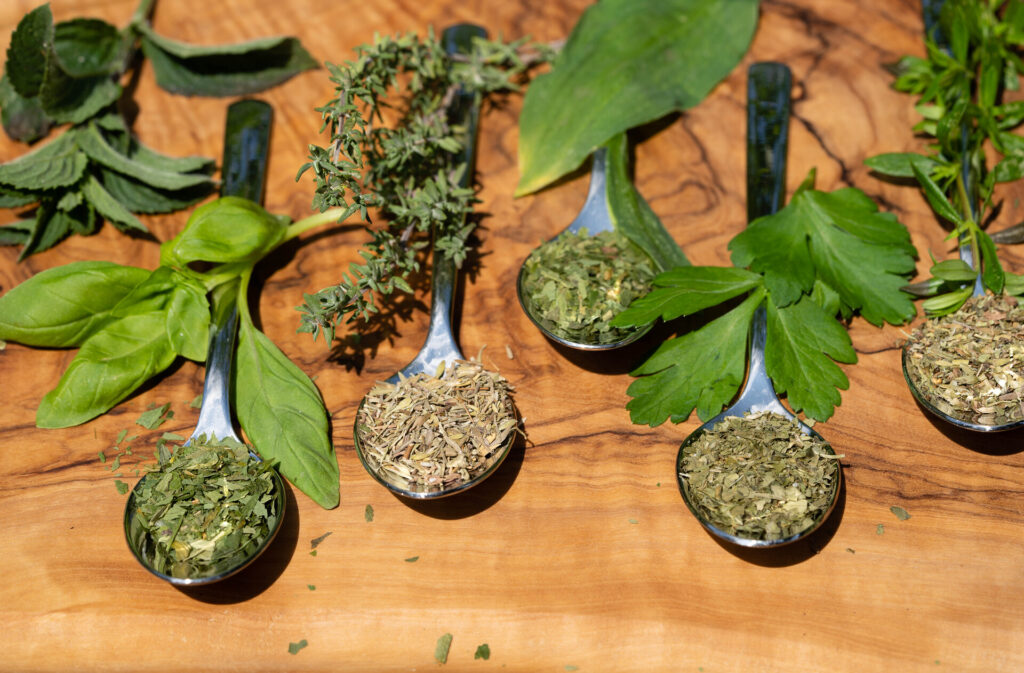
Herbs are the secret weapon of any kitchen, bringing life and vibrancy to dishes. But when it comes to using fresh or dried herbs, many home cooks are left wondering which to choose and how to use them effectively. Chef Abdul breaks down the differences between fresh and dried herbs and offers tips on making the most of each.
Fresh Herbs
Fresh herbs are harvested straight from the plant, retaining natural moisture, bright colour, and crisp flavour. They’re ideal for adding a delicate, aromatic freshness to dishes.
Dried Herbs
Dried herbs are fresh herbs that have been dehydrated, which concentrates their flavours but diminishes their brightness. They’re perfect for longer cooking processes where their robust flavour has time to infuse.
Fresh herbs shine in dishes that require minimal cooking or are served raw. They add a burst of flavour and visual appeal.
Best Uses
Chef Abdul’s Tip:
Store fresh herbs in the refrigerator in a damp paper towel inside a resealable bag to keep fresh herbs vibrant for longer.
Dried herbs are best for recipes that require extended cooking times, as heat and liquid help release their concentrated flavours.
Best Uses
Chef Abdul’s Tip:
Crush dried herbs between your fingers before adding them to release their natural oils and enhance their aroma.
Because dried herbs are more concentrated, you’ll need less than fresh herbs. A general rule is:
1 tablespoon of fresh herbs = 1 teaspoon of dried herbs.
This ratio may vary for particularly strong or mild herbs, so adjust to taste.
Fresh Herbs
Dried Herbs
Fresh Herbs
Pros:
Cons:
Dried Herbs
Pros:
Cons:
For maximum flavour, mix fresh and dried herbs in recipes. For example:
Chef Abdul’s Tip:
Mix fresh and dried herbs in homemade marinades or herb butter to balance bold and fresh flavours.
If you have the space, growing your herbs is a rewarding way to enjoy fresh herbs on demand. Popular options include basil, mint, parsley, and thyme.
Chef Abdul’s Advice:
Start with hardy, low-maintenance herbs like rosemary or oregano if you’re new to gardening.
Both fresh and dried herbs play vital roles in cooking, each offering unique benefits. Chef Abdul often says, “Herbs are the heart of flavour—whether fresh or dried, they bring soul to every dish.” With these tips, you can confidently choose the right herb for any recipe and elevate your cooking to aromatic perfection.
Chef Abdul © Copyright 2024. All rights reserved.